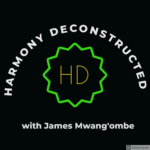
Rest is crucial for us to function optimally as human beings. In modern society, there exists that feeling of wanting to keep going, to keep working and to be busy every hour of the day when we are awake.
“Take rest; a field that has rested gives a beautiful crop.” Ovid, Roman Poet
I recently learnt that there are seven types of rest. Oftentimes we may focus on one kind of rest, however, we may end up still tired after resting. That is an indication that we may be neglecting several of the other kinds of rest that are necessary for us to feel fully recharged. Physician and author Saundra Dalton-Smith talks about these seven kinds of rest:
- Physical rest – this can be both passive or active. Passive rest includes sleep or a nap. Active rest involves doing restorative activities that reinvigorate the body such as yoga, massages and stretches. These help improve circulation within and flexibility of the body.
- Mental rest – when there is so much to process mentally, and especially when we do so non stop for a long time, our minds get exhausted. One then becomes irritable, forgetful, lacks concentration, they are restless and may lack sleep or if one sleeps, they wake up still tired. For rest, schedule ample short breaks throughout the day. One can also keep a notebook or notepad to capture any thoughts buzzing in the mind throughout the day.
- Sensory rest – sensory exhaustion can be caused by excessive exposure to bright lights, computer or mobile phone screens, loud noises, background noises or conversations in the work area where one is trying to concentrate. These can be mitigated by shutting the eyes for a while, eye massage, switching off or unplugging electronics at the end of the day.
- Creative rest – this happens when you take time to enjoy nature, places that invite you to have a sense of awe, peace, and calmness. Visiting such places as parks, an ocean, a waterfall, hiking up a hill or mountain can be quite refreshing. It also involves enjoying works of art. This rest is crucial for people who spend time brainstorming and solving problems. Taking this rest can give you fresh ideas or invigorate you to find solutions to the issues concerning you.
- Emotional rest – we may get emotionally exhausted through some encounters we have either at home or at the workplace. It does also happen when we have a difficult situation in our lives. To get this rest, you need to confide in someone. It could be a family member, friend or someone willing to listen to you and you can talk about what is going on. Sometimes listening to calming or reassuring music has worked for me in these kinds of circumstances.
- Social rest – socializing can be exhausting at times. There are people that naturally can exhaust you while you interact with them and there are those who can energize you. To get this rest, you need to deliberately get times with the people who energize you. These are people you feel at ease around. You can talk, laugh and just be.
- Spiritual rest – when you feel aloof, alone and unanchored you may need this rest. This involves taking time to connect with God, meditation, prayer and doing something meaningful for the benefit of others. This gives one a deep sense of love, acceptance, belonging and purpose.
To get ample rest, Dalton-Smith says we need to incorporate most if not all these forms of rest in our lives. If you evaluate yourself, you may need more of a certain type of rest than another depending on which you have a deficit in.
There are warning signs that a person could be having burnout. I saw the following signs in an art piece by Glo, an online yoga, meditation and fitness classes platform. The signs were lined up from early signs of burnout to when it becomes a critical issue. They are as follows:
- A negative or critical attitude
- Trouble sleeping
- Overwhelming feelings of inadequacy
- Headaches, nausea, and backaches
- Numbness or emptiness
- Difficulty performing your usual tasks
There are stress factors we encounter on a daily basis, we should take time to address them as soon as possible. Leaving the stressors to accumulate can cause us to be exhausted, to burnout and not be able to function optimally. The longer we wait to address an issue, the tougher it will be to deal with and the longer it will take us to get restored to wellness. It would be like the story told of a professor who once walked around his classroom full of students holding a glass of water with his arm straightened out to the side. He asked his students, “How heavy is this glass of water?”
The students started to shout out guesses–5 grams, 7 grams, 20, 30, no 40.
The professor replied, “The absolute weight of this glass isn’t what matters while I’m holding it. Rather, it’s the amount of time that I hold onto it that makes an impact.
If I hold it for, say, two minutes, it doesn’t feel like much of a burden. If I hold it for an hour, its weight may become more apparent as my muscles begin to tire. If I hold it for an entire day–or week–my muscles will cramp and I’ll likely feel numb or paralyzed with pain, making me feel miserable and unable to think about anything aside from the pain that I’m in.
In all of these cases, the actual weight of the glass will remain the same, but the longer I clench onto it, the heavier it feels to me and the more burdensome it is to hold.
The class understood and shook their heads in agreement.
The professor continued to say, “This glass of water represents the worries and stresses that you carry around with you every day. If you think about them for a few minutes and then put them aside, it’s not a heavy burden to bear. If you think about them a little longer, you will start to feel the impacts of the stress. If you carry your worries with you all day, you will become incapacitated, prohibiting you from doing anything else until you let them go.”
So the best is to schedule times of rest throughout the day as much as it is possible. I think it makes for a more productive lifestyle. I admit, I have not yet formed the habit of having all these seven kinds of rest. However, I have realized it is a beneficial habit and I am purposing to incrementally incorporate all the seven kinds of rest in my way of being.
I realize that rest is an important theme in the scriptures too. In the Old Testament, God instructed the people to observe the Sabbath rest every seventh year. Of course there is the weekly rest on the 7th day. So for 6 years, the people were to plant the fields and harvest crops, however, during the seventh year, the land was to have a complete rest. No cultivation or harvesting would be done. The people would eat whatever grew on its own during that year of Sabbath. After fifty years of doing this, they would also mark the year of Jubilee which was also another form of rest, including restitution of property, not cultivating land among other requirements.
Taking this rest required faith, that God would provide enough harvest in the sixth year to cover the entire seventh year when there would be no cultivation. It says in Leviticus 25:20 “but you might ask, ‘what will we eat during the seventh year, since we are not allowed to plant or harvest crops that year?’ Be assured that I will send my blessing for you in the sixth year, so the land will produce a crop large enough for three years. When you plant your fields in the eighth year, you will still be eating from the large crop of the sixth year. In fact, you will still be eating from that large crop when the new crop is harvested in the ninth year.”
Jesus also took time to rest and he had his disciples do so too. For instance in Mark 1:35 “before daybreak, Jesus got up and went out to an isolated place to pray”. This I think is an example of spiritual rest that he exemplified. In Mark 6:31 Jesus recognized the need for his disciples to rest. “He said “Let’s go off by ourselves to a quiet place and rest awhile.” He said this because there were so many people coming and going that Jesus and his apostles didn’t even have time to eat.”
A word of caution, it is important to be strategic about the times and duration we choose to rest. Like almost anything in life, too much rest is not good. It can evolve to laziness as Jules Renard said“Laziness is nothing more than the habit of resting before you get tired.”
So which of the seven kinds of rest do you think you have a deficit in?
For us to live an inspired harmonious life, we should take time to rest and allow our body, and may I say the three levels of the body (the outer, the inner and the innermost, that is the physical, emotional and spiritual body) to recover. This will ensure that we operate harmoniously and be productive as we pursue the meaningful goals we are striving for.
